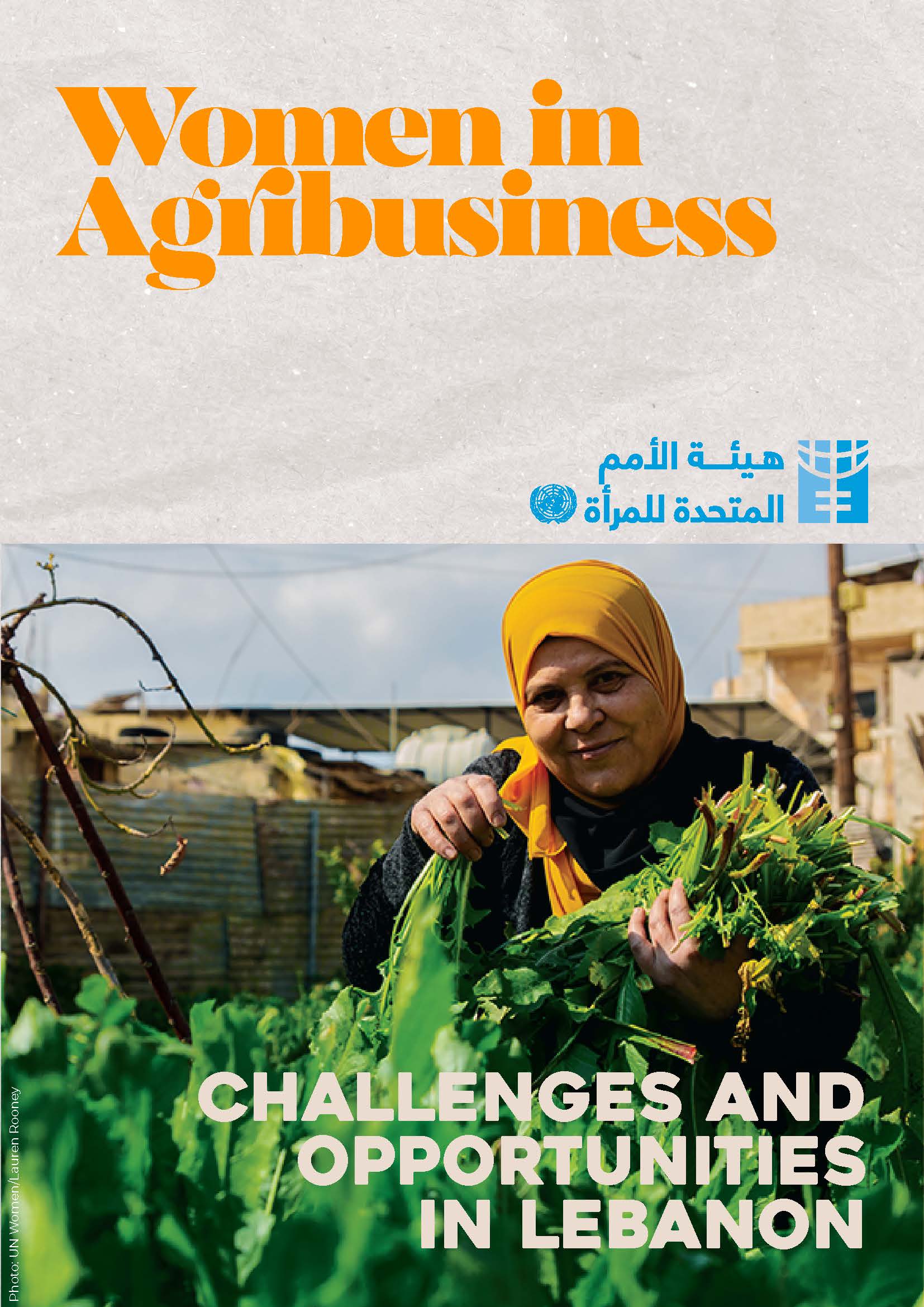
Women in Agribusiness: Challenges and Opportunities in Lebanon

Lebanon continues to grapple with a severe economic crisis that has led to complex and prolonged humanitarian issues. Since 2019, the country has been facing a major financial crisis[1] in tandem with a protracted Syrian refugee crisis, magnified by the COVID-19 pandemic, the Beirut Port Blast in August 2020 and ongoing global conflicts, such as the war in Ukraine, which has led to surges in energy and food prices. Additionally, at the time of the report writing, the war on Gaza had escalated tremendously, with armed clash in South Lebanon leading to mass displacements and threats extending throughout the country, which has further exacerbated a highly fragile context.
Within this context, Lebanon’s agriculture sector is pivotal for the country’s development, particularly because of its ability to engage rural and urban women, be flexible, adapt to crises and spur potential innovation and diversification.[2] Lebanon’s agriculture sector has historically contributed 2.5 per cent to GDP, supporting rural communities during the Syrian crisis before the 2019 financial collapse. From 2013 to 2020, the sector demonstrated adaptability, stabilizing rural areas and sustaining the livelihoods of refugees and host communities.
This study, which examines the conditions of women in Lebanon’s agribusinesses, is the second gender analysis under the Productive Sectors Development Programme (PSDP).
UN Women undertook an intersectional gender analysis during PSDP’s baseline phase. The analysis looked at the daily roles and responsibilities of women across fruit and vegetable value chains in the North of Lebanon. It focused on the voices and perspectives of women, recounting the opportunities and challenges in the agriculture sector. It found that women are deeply involved in various agricultural activities but continue to face limited access to resources, such as land and capital; cyclical issues related to personal status laws affecting marriage, family and inheritance; and risks of exploitation due to the high informality of the agriculture sector. Despite facing structural and daily obstacles, women express a growing interest in engaging across all segments of the agricultural value chain. They are enthusiastic about attending training sessions, accessing grants, starting cooperatives and finding income-generation ideas through agriculture in light of the crisis.
This analysis, conducted at the endline phase, examines agribusinesses, especially women-led ones, in Lebanon. It aims to understand patterns and dynamics of agribusinesses as well as the opportunities and working conditions of women employed in, or part of, the supply chain of agribusinesses.